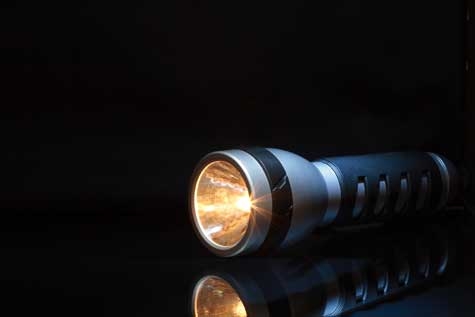Safety During Power Outages
While we are blessed in this region with a relatively mild climate almost all year round, most of us who have lived here for years have experienced a power outage. If you're planning to move to the Southern Gulf Islands or the Greater Victoria region, you should consider planning for how you will keep yourselves safe and comfortable when the power goes out.
There are many things we can do to prepare in advance of power outages, but this writing is about what can be done to stay safe DURING power outages. This presumes that you don't have a backup power source, but generators often aren't used to power up an entire home and some of the following safety suggestions could still apply.
Power outages can be dangerous. Hazards can include:
- Injuries from tripping and falling
- House fires
- Contaminated Food
- Overexposure to cold or to heat
- Water/Sewage problems
When the Power Goes Out:
- Safely light the area(s) you'll be spending time in. Candles are the high risk for fires during power failures when people sometimes use them as portable light sources or place them in locations they ordinarily wouldn't such as close to bedding, furniture, and window dressings. Preferable alternatives would be lights that are either rechargeable or battery-operated. If you do resort to candles, kerosene lamps or other flammable light sources, try not to carry them around with you, set them up to be as stationary as is practical. If you are using candles, particularly if you don't commonly use them or if you need to walk around with them, be aware that many modern clothing and decorative fabrics are highly flammable. This may seem obvious but please, please be extra safe with flammable lighting sources.
- Clear walkways and floors of tripping hazards. Common things we keep on floors that are tripping hazards when the power goes out and lighting is limited can include laundry baskets, toys, slippers, even sleeping pets! Pay close attention to the floors and walkways in your home during power outages, trips and falls are a common source of injury under low light conditions.
- Check and Turn off Cooking Appliances and others that could be a fire risk. What often happens when the power goes out is that people forget what was powered on at the time, which then goes back on once the power returns. A pot on a stove, a kettle plugged in and set to run, a curling iron left running, these are examples of appliances that can start fires if they are forgotten about during hours/days of a power failure and then come back on when the power returns. When the power goes out, do a quick review of what appliances may have been left running and turn off/unplug any that could pose a fire hazard.
- Beware of food contamination during power failures. Do not open your fridge or smaller freezers if it's not necessary, it'll cause the food inside to spoil more quickly. If you were preparing food, be cautious about assuming it's safe to eat if it's partially cooked or left out for a prolonged time. It can be harder to clean things as well without the use of hot water, this includes food preparation surfaces and dishes. If the power is out for a day or more, consider that much of the food in your fridge is spoiled and that it may not be safe to eat.
- Keep warm or stay cool, depending on your seasonal and health circumstances. If keeping warm is the objective then layer up and stay cozy with blankets and loved ones if there are any of the latter around. Preserve your energy by minimizing movement. If you need to stay cool then head for the basement, or cool showers/baths. If you or your family are medically compromised, elderly, or otherwise at special risk, consider getting yourself to a friend or loved one's home that may keep you more safely warm or cool depending on your requirements and the season that the power failure occurs in.
- Water and Sewage problems can occur where localized electrical power is required for service. For example many wells depend on electrical pumps to bring up water, same goes for sump pumps that use electricity to push sewage and waste water out of a home. Most hot water tanks will also only keep the water warm for a couple of hours, use your hot water while you can to sanitize your eating areas before it cools down or runs out. If you have a sump pump that is electrical, avoid flushing unnecessarily or running excess water to prevent backup onto your property. If your well pump isn't working and you don't have a backup fresh water supply, find some water from nearby stores or neighbours to make sure you have some.
This list makes power outages sound quite terrible and alarming, however many people enjoy them for short durations as they force us to slow down and do some things in ways they were done in the 'olden days. For many people a power outage is the time to play cards and board games, or to put the phones and computers down to spend less-interrupted quality time with friends and loved ones.
When the power goes out, first consider how you can get through it safely without fire, injury, or sickness. Then enjoy the peace and quiet!

